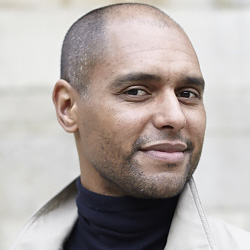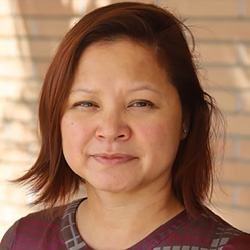The JHI is pleased to announce the Chancellor Jackman 6-month Faculty Research Fellowships in the Humanities for 2023-2024.
Tenured faculty at the University of Toronto, each six-month Faculty Research Fellow receives a half-year leave from the normal teaching and administrative duties to undertake research (including travel) on the project proposed in their application. They are chosen for demonstrated excellence of their record of scholarship and the merit of the research proposal. Six-month fellows are invited to participate in the intellectual life of the JHI in the year following their fellowship, often by contributing a short talk to the JHI’s YouTube channel.
6-Month Faculty Research Fellows
- Jonardon Ganeri, A&S Philosophy—Absence, Attention, and Imagination: A Cross-Cultural Philosophical Inquiry
- Shami Ghosh, A&S Centre for Medieval Studies—The Art of Dying Well and the Origins of Capitalist Modernity
- Farzaneh Hemmasi,Faculty of Music—Sound, Community, and Tolerance in Toronto’s Kensington Market
- Edward Jones-Imhotep, A&S History & Philosophy of Science & Technology—The Black Androids: History and the Technological Underworld
- David B. Nieborg, UTSC Arts, Culture, and Media—The Political Economy of Canadian Creator Labour
- Nhung Tuyet Tran, A&S History—Cosmopolitanism, Transimperial Identities, and the Vietnamese Confession Crisis in the Making of the Early Modern Global Church
- Liye Xie, UTM Anthropology—Resettlement, Urban Construction, and Social Transformation in the Central Plain at the Dawn of China’s Dynastic History
Jonardon Ganeri
A&S Philosophy
 Jonardon Ganeri (D.Phil. Philosophy, University of Oxford, 1994) is the Bimal K. Matilal Distinguished Professor of Philosophy at the University of Toronto. He is a philosopher whose work draws on a variety of philosophical traditions to construct new positions in the philosophy of mind, metaphysics and epistemology. His books include Attention, Not Self (2017), a study of early Buddhist theories of attention; The Concealed Art of the Soul (2012), an analysis of the idea of a search for one’s true self; Virtual Subjects, Fugitive Selves (2020), an analysis of Fernando Pessoa’s philosophy of self; and Inwardness: An Outsiders’ Guide (2021), a review of the concept of inwardness in literature, film, poetry, and philosophy across cultures. He joined the Fellowship of the British Academy in 2015 and won the Infosys Prize in the Humanities the same year, the only philosopher to do so.
Jonardon Ganeri (D.Phil. Philosophy, University of Oxford, 1994) is the Bimal K. Matilal Distinguished Professor of Philosophy at the University of Toronto. He is a philosopher whose work draws on a variety of philosophical traditions to construct new positions in the philosophy of mind, metaphysics and epistemology. His books include Attention, Not Self (2017), a study of early Buddhist theories of attention; The Concealed Art of the Soul (2012), an analysis of the idea of a search for one’s true self; Virtual Subjects, Fugitive Selves (2020), an analysis of Fernando Pessoa’s philosophy of self; and Inwardness: An Outsiders’ Guide (2021), a review of the concept of inwardness in literature, film, poetry, and philosophy across cultures. He joined the Fellowship of the British Academy in 2015 and won the Infosys Prize in the Humanities the same year, the only philosopher to do so.
Fellowship Research Project—Absence, Attention, and Imagination: A Cross-Cultural Philosophical Inquiry
The brilliant 20th-century Bengal philosopher Krishnachandra Bhattacharyya argues in his justly lauded classic The Subject as Freedom (1930) that our ability to attend to absences—to wants, lacks, losses and lacunae, to the missing and the misplaced—is fundamentally associated with the birth of subjectivity, our first awareness of ourselves as conscious subjects of experience. My project aims to unpack this bold claim, demonstrating how he draws on William James’ notions of a “fringe” and an “aching void” in consciousness, interrelates it with ideas from classical Sanskrit philosophy, and how his work can lead us to a deeper understanding of related ideas in the phenomenology of Sartre, Rubin and Gurwitsch.
Shami Ghosh
Centre for Medieval Studies
Shami Ghosh (Ph.D. Medieval Studies, University of Toronto, 2009) is Associate Professor of Medieval History. His work encompasses the intellectual, cultural, social, and economic history of medieval Latin Europe, literature in the Germanic vernaculars of the Middle Ages, and comparative/global economic history to c.1800. Educated at King’s College London, Harvard University, and the University of Toronto, he held postdoctoral fellowships at the University of Leicester, Magdalen College, Oxford, and the Pontifical Institute of Mediaeval Studies before returning to U of T as faculty in 2016. We are pleased to welcome Shami back as a Fellow of the Jackman Humanities Institute; he held a Chancellor Jackman Graduate Fellowship in 2009.
Fellowship Research Project—The Art of Dying Well and the Origins of Capitalist Modernity
This project examines late medieval and early modern concepts concerning, and practices of preparing for, a ‘good death’; and the relationship between changes to these and the transformations of economic ideology and behaviour that led to the triumph of capitalism. It seeks to investigate whether religious attitudes towards the afterlife and death had any influence on people’s economic behaviours in a global perspective, and whether these anchored concepts of a pre-capitalist moral economy that was destroyed partly because of changes in religious culture in the early modern centuries.
Farzaneh Hemmasi
Faculty of Music
 Farzaneh Hemmasi (Ph.D. Musicology, Columbia University, 2010) is Associate Professor of Ethnomusicology at University of Toronto. Her award-winning monograph Tehrangeles Dreaming: Intimacy and Imagination in Southern California’s Iranian Pop Music (Duke University Press 2020) is an ethnographic account of the Los Angeles-based postrevolutionary Iranian expatriate culture industries. Prof. Hemmasi’s other publications consider the circulation of political music and poetry between diaspora and homeland; the post-revolutionary political metaphorization of the Iranian female singing voice; and Iranian twentieth century “New Poetry” and popular music. A Connaught Community Partnership Research grant and Insight Development Grant from the Social Science and Humanities Research Council fund her collaborative, community-engaged ethnographic research project on music, sound, and noise in Toronto’s Kensington Market neighbourhood.
Farzaneh Hemmasi (Ph.D. Musicology, Columbia University, 2010) is Associate Professor of Ethnomusicology at University of Toronto. Her award-winning monograph Tehrangeles Dreaming: Intimacy and Imagination in Southern California’s Iranian Pop Music (Duke University Press 2020) is an ethnographic account of the Los Angeles-based postrevolutionary Iranian expatriate culture industries. Prof. Hemmasi’s other publications consider the circulation of political music and poetry between diaspora and homeland; the post-revolutionary political metaphorization of the Iranian female singing voice; and Iranian twentieth century “New Poetry” and popular music. A Connaught Community Partnership Research grant and Insight Development Grant from the Social Science and Humanities Research Council fund her collaborative, community-engaged ethnographic research project on music, sound, and noise in Toronto’s Kensington Market neighbourhood.
Fellowship Research Project—Sound, Community, and Tolerance in Toronto’s Kensington Market
My project is the creation of a website sharing the multimodal outcomes of a community engaged ethnographic research project called the Kensington Market Soundscape Study on the perceived increase of sound and noise in a downtown Toronto neighborhood’s public realm since March 2020, the beginning of the global Covid-19 pandemic. The multi-faceted website will include sonic and visual documentation of KM community members accounts of their experiences with neighbourhood sound and annotated, neighbourhood soundscape recordings in online maps of Kensington Market.
Edward Jones-Imhotep
A&S History & Philosophy of Science & Technology
 Edward Jones-Imhotep (Ph.D. History of Science, Harvard University, 2001) is Associate Professor and Director of the Institute for the History and Philosophy of Science and Technology (IHPST). As a cultural historian of technology, his research engages two broad themes: the changing historical boundaries between technology and nature; and the historical relations between machines and the self. His book, The Unreliable Nation: Hostile Nature and Technological Failure in the Cold War (2017) won the Sidney Edelstein Prize in the history of technology. His forthcoming book, Reliable Humans/Trustworthy Machines, investigates how people from the late-18th to the mid-20th centuries saw machine failures as a problem of the self.
Edward Jones-Imhotep (Ph.D. History of Science, Harvard University, 2001) is Associate Professor and Director of the Institute for the History and Philosophy of Science and Technology (IHPST). As a cultural historian of technology, his research engages two broad themes: the changing historical boundaries between technology and nature; and the historical relations between machines and the self. His book, The Unreliable Nation: Hostile Nature and Technological Failure in the Cold War (2017) won the Sidney Edelstein Prize in the history of technology. His forthcoming book, Reliable Humans/Trustworthy Machines, investigates how people from the late-18th to the mid-20th centuries saw machine failures as a problem of the self.
Fellowship Research Project—The Black Androids: History and the Technological Underworld
This project explores the black technological experience in 19th- and early 20th-century America through a history of the “black androids” – automata in the form of black humans. The project examines how the technologies that drove the androids racist depictions – steam, clockwork, electricity – also figured crucially in black technological experiences, agency, and selfhood in 19th- and early 20th-century New York. Focusing on the period from 1830 to 1930, it aims to produce the first history of android technologies as both race-making objects and central elements in the technological experiences of African Americans.
David B. Nieborg
UTSC Arts, Culture, and Media
 David B. Nieborg (Ph.D. Media Studies, University of Amsterdam, 2011) is an Associate Professor of Media Studies at the University of Toronto. David published on the game industry, app and platform economics, and game journalism in academic outlets such as New Media & Society, Social Media + Society, and Media, Culture and Society. He held visiting and fellowship appointments with MIT, the Queensland University of Technology, the University of Amsterdam, and the Chinese University of Hong Kong. He is the co-author of Platforms and Cultural Production (Polity, 2021) and Mainstreaming and Game Journalism (MIT Press, 2023).
David B. Nieborg (Ph.D. Media Studies, University of Amsterdam, 2011) is an Associate Professor of Media Studies at the University of Toronto. David published on the game industry, app and platform economics, and game journalism in academic outlets such as New Media & Society, Social Media + Society, and Media, Culture and Society. He held visiting and fellowship appointments with MIT, the Queensland University of Technology, the University of Amsterdam, and the Chinese University of Hong Kong. He is the co-author of Platforms and Cultural Production (Polity, 2021) and Mainstreaming and Game Journalism (MIT Press, 2023).
Fellowship Research Project—The Political Economy of Canadian Creator Labour
This project investigates the political economy of Canadian creator labour and contributes to ongoing research on the platformization of cultural production. Creators are self-employed cultural producers, who engage in for-profit work independent from incumbent media companies and institutions but are dependent on platforms such TikTok or Twitch to create, distribute, and monetize their content. Existing scholarship on creators focuses predominantly on the everyday reality of work, less on how creators negotiate their institutional relationships with platforms. To gain a better insight into the Canadian creator economy this project unpacks the shifting dependencies in platform markets by exploring data-driven methods for institutional analysis.
Nhung Tuyet Tran
A&S History
 Nhung Tuyet Tran (Ph.D. History, UCLA, 2004) has intellectual interests that lie at the intersection of decolonial, feminist, legal and religious studies. She is the author of Familial Properties: Gender, State, & Society in Early Modern Vietnam (2018), co-editor of Vietnam: Borderless Histories (Wisconsin, 2006), and “Releasing the Souls: Vietnamese Catholic Identity in the Early Modern Era.” A new project examines Indigenous Cham women’s authority in the context of forced assimilation and Vietnamese settler colonialism in the early modern era. She draws from legal, literary, and religious materials written in classical Vietnamese (the demotic script), literary Sinitic, Akhar thrar (Sanskrit Cham), and European languages in her scholarship.
Nhung Tuyet Tran (Ph.D. History, UCLA, 2004) has intellectual interests that lie at the intersection of decolonial, feminist, legal and religious studies. She is the author of Familial Properties: Gender, State, & Society in Early Modern Vietnam (2018), co-editor of Vietnam: Borderless Histories (Wisconsin, 2006), and “Releasing the Souls: Vietnamese Catholic Identity in the Early Modern Era.” A new project examines Indigenous Cham women’s authority in the context of forced assimilation and Vietnamese settler colonialism in the early modern era. She draws from legal, literary, and religious materials written in classical Vietnamese (the demotic script), literary Sinitic, Akhar thrar (Sanskrit Cham), and European languages in her scholarship.
Fellowship Research Project—Cosmopolitanism, Transimperial Identities, and the Vietnamese Confession Crisis in the Making of the Early Modern Global Church
This study examines how an existential crisis over confession in a North Vietnamese Catholic community prompted local believers to send men of no particular importance across the Indian Ocean and around the African continent to Europe where they were feted by Louis XIV in Paris and Innocent XI in Rome. They went on this mission to demand the attention the attention the duties owed them from European religious and secular leaders. It suggests that the cosmopolitan itineraries of these three catechists triggered the second rites controversy in China, and globally, in 1693. It is a study of how Catholicism as lived and practiced in Vietnam reshaped the global Church in the early modern era and how the demands and actions of Vietnamese believers force us to rethink the field of “Global Catholicism.”
Liye Xie
UTM Anthropology
 Liye Xie (Ph.D. Archaeology, University of Arizona, 2014) is Associate Professor and Associate Chair of the Department of Anthropology, University of Toronto Mississauga (UTM). She was a full-time archaeologist in China 2005-2007, completed her Ph.D. at the University of Arizona 2007-2014, and joined the UTM faculty upon graduation. As an anthropological archaeologist with a background in China’s historically oriented approach to archaeology, she studies preindustrial technologies of bone, stone, and earthen construction to address questions about the co-construction of technology and society in Neolithic and Bronze Age China. She received the University of Toronto Mississauga Annual Research Prize in the Social Sciences 2019-2020.
Liye Xie (Ph.D. Archaeology, University of Arizona, 2014) is Associate Professor and Associate Chair of the Department of Anthropology, University of Toronto Mississauga (UTM). She was a full-time archaeologist in China 2005-2007, completed her Ph.D. at the University of Arizona 2007-2014, and joined the UTM faculty upon graduation. As an anthropological archaeologist with a background in China’s historically oriented approach to archaeology, she studies preindustrial technologies of bone, stone, and earthen construction to address questions about the co-construction of technology and society in Neolithic and Bronze Age China. She received the University of Toronto Mississauga Annual Research Prize in the Social Sciences 2019-2020.
Fellowship Research Project—Resettlement, Urban Construction, and Social Transformation in the Central Plain at the Dawn of China’s Dynastic History
This project builds on Placemaking Theory and Structuration Theory to investigate the epochal social changes between the late Neolithic regional states and the early Bronze Age supraregional state during 2500-1250 BCE in the Central Plain of China. It synthesizes decades of archaeological findings at 10 relevant early urban sites to trace the knowledge-building process regarding the relationship between resettlement, construction, and social reform, and highlights the social and performative nature of construction campaigns that is fundamental to shaping social relations and materializing authority among an agglomerated population in a newly urbanized environment. Furthermore, it will compare with early urban development that followed resettlement events in regions outside of China for a more comprehensive understanding of the convergent and divergent trajectories to political complexification in the world’s early urbanized societies.


